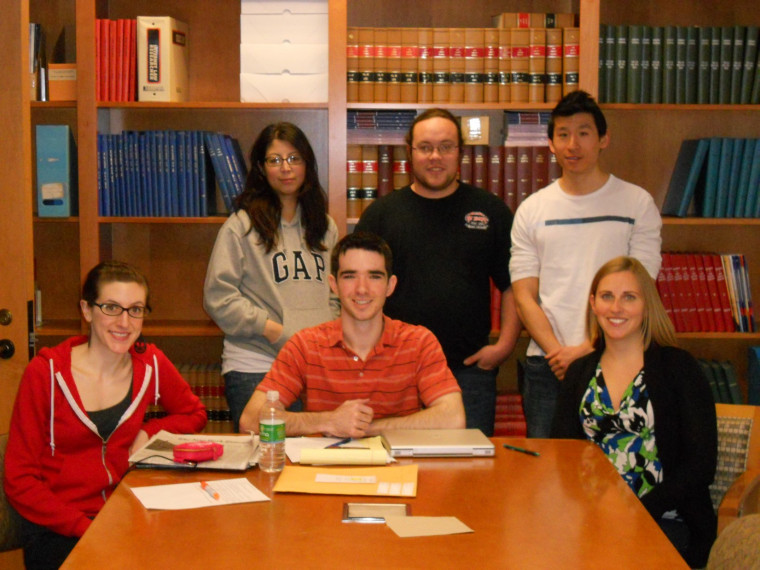Spring 2011 Crime Victim Litigation Clinic
Open gallery

Once again, the students of the Crime Victim Litigation Clinic spent the semester working hard to make a meaningful difference for victims while practicing real-world legal skills. This year’s spring semester class, which included Ashley Nastoff, Lissette McIlmoil, Ian Brown, Leland Daggett, Kimberly Villanueva, and Timothy Wong, worked on a variety of important victims’ rights issues:
Ashley helped protect the privacy and dignity of a sexual assault victim by researching how to oppose a defense motion that sought to introduce evidence that the rape victim “was not acting like a rape victim.” Ashley’s legal research and memorandum helped the Oregon Crime Victim Law Center successfully oppose the defense motion.
Lissette’s research on whether courts can properly consider a victim’s alleged negligence in uncovering a fraud or other criminal conduct when it determines the amount of restitution to be awarded will help ensure that victims nationwide are not revictimized at sentencing by having their conduct put on trial and that they are awarded full restitution for their losses.
Ian worked with the author of an upcoming NCLVI white paper publication by providing research and feedback. The white paper, distributed nationally, is entitled, “Child-Victims: Better Served by a Traditional Attorney or by a Guardian ad Litem?” Ian’s work on the publication will help victim attorneys and victim advocates around the country serve child-victims more effectively and protect child-victims’ rights.
Leland prepared a comprehensive legal memorandum on whether victims of financial crime can keep their social security number and other identifying information from the defendant and public during criminal prosecutions. His research will help prevent victims from enduring further victimization due to possible identity theft resulting from exposure of personal information.
Kimberly conducted research and provided analysis on the question of the application of a victim’s right to refuse discovery requests to civil matters during the pendency of related criminal proceedings. This research is critical because NCVLI has received numerous accounts of criminal defendants using related civil proceedings—such as restraining order proceedings initiated by the victims in domestic violence cases—to harass the victim and make an end-run around defendants’ limited discovery rights in the criminal proceedings.
Timothy conducted research and helped to prepare a 50-state survey analyzing state statutes granting victims the right to return of their property. This important research demonstrates the variance in rights between states and may help policy makers strengthen a specific jurisdiction’s protections.
Thanks to all our students for the work you do for victims!
© 2011 National Crime Victim Law Institute

